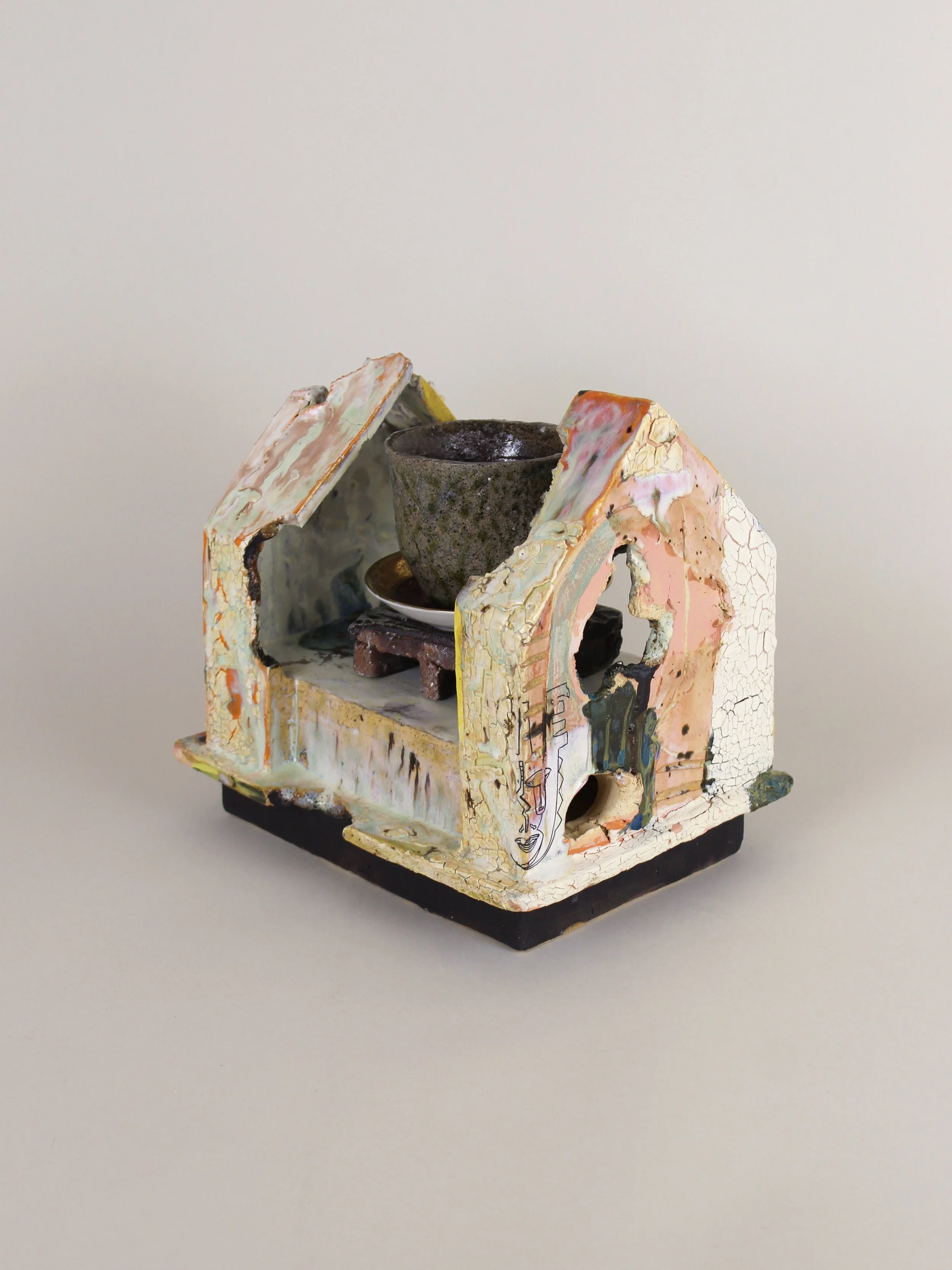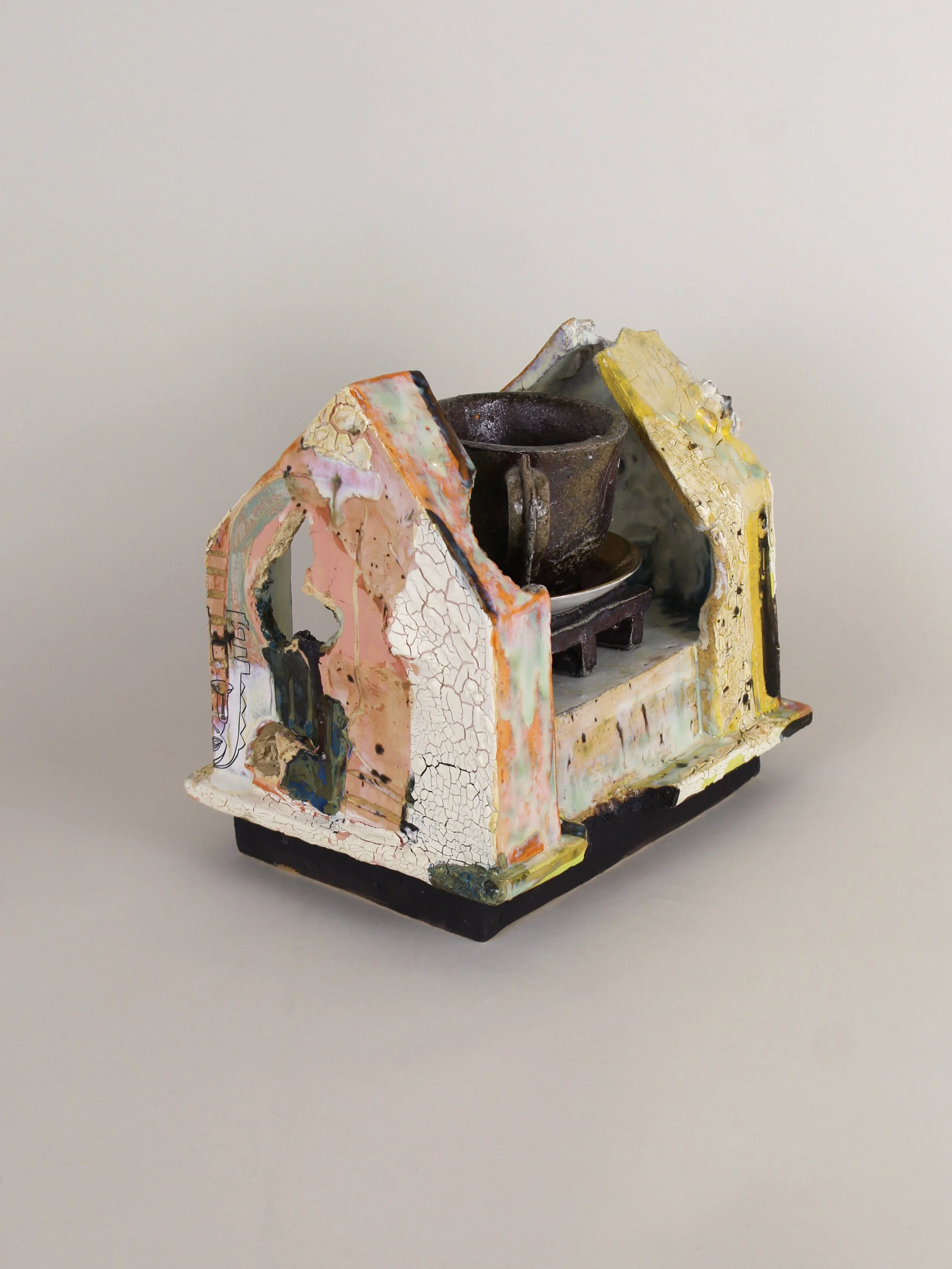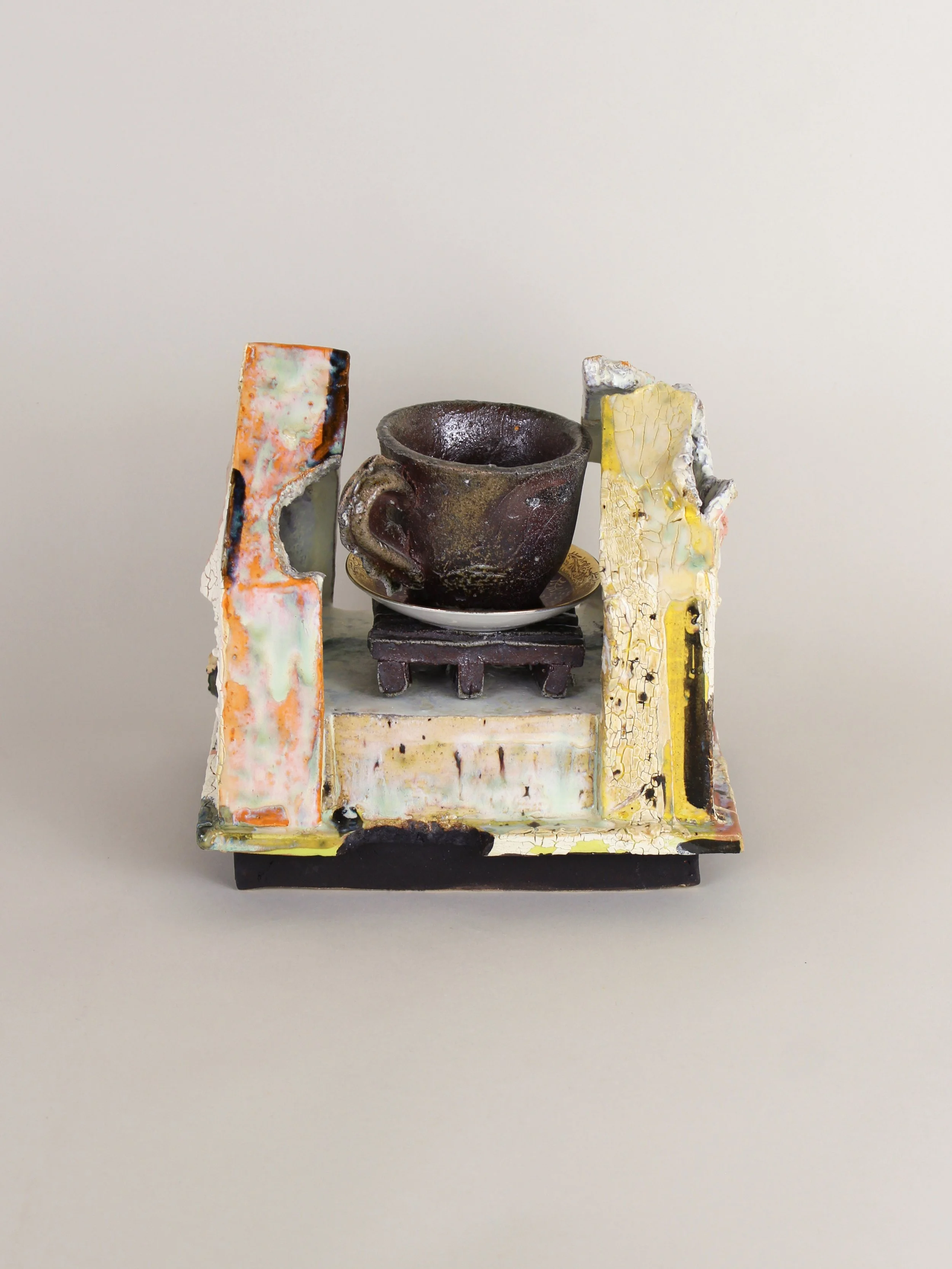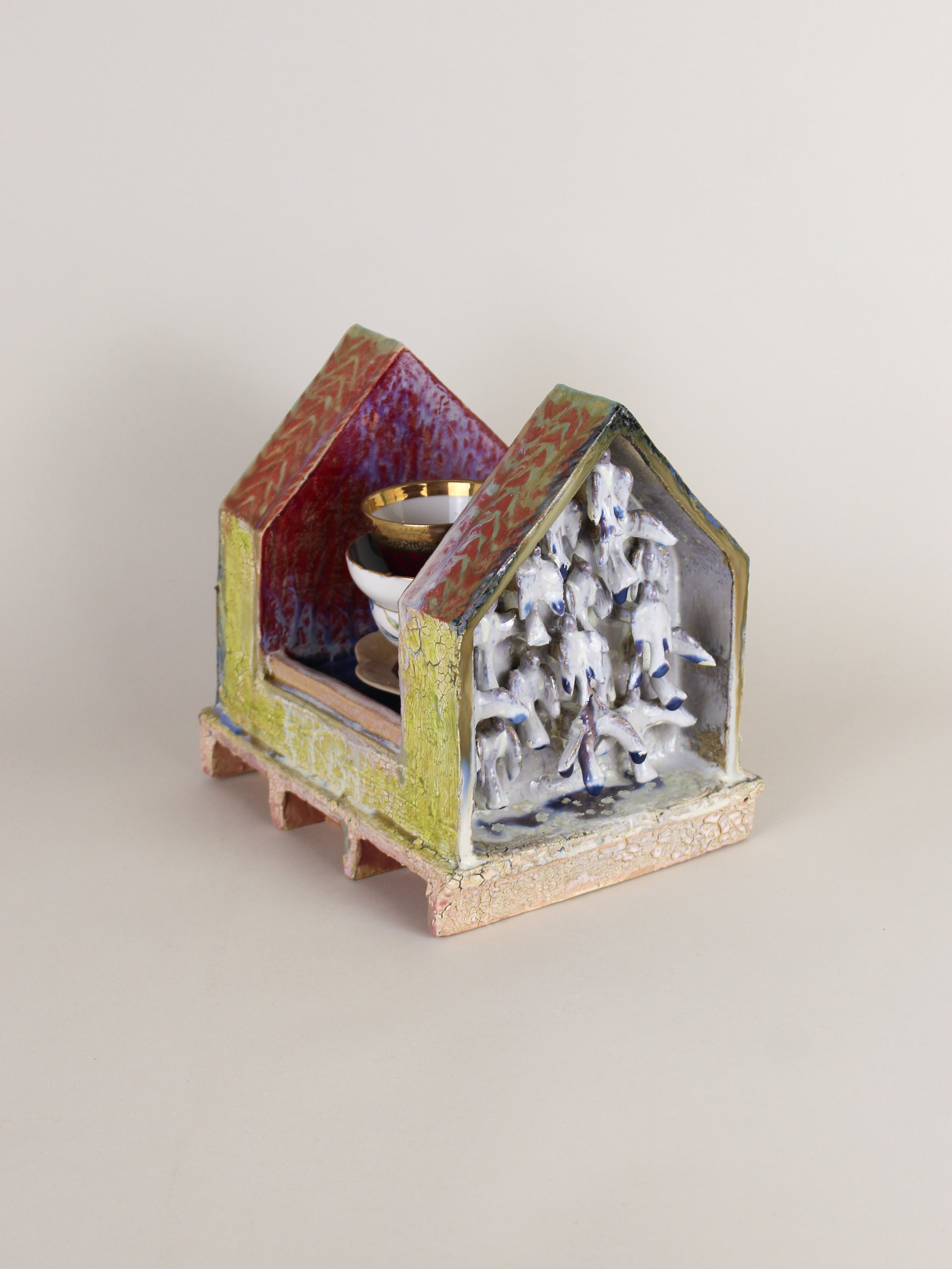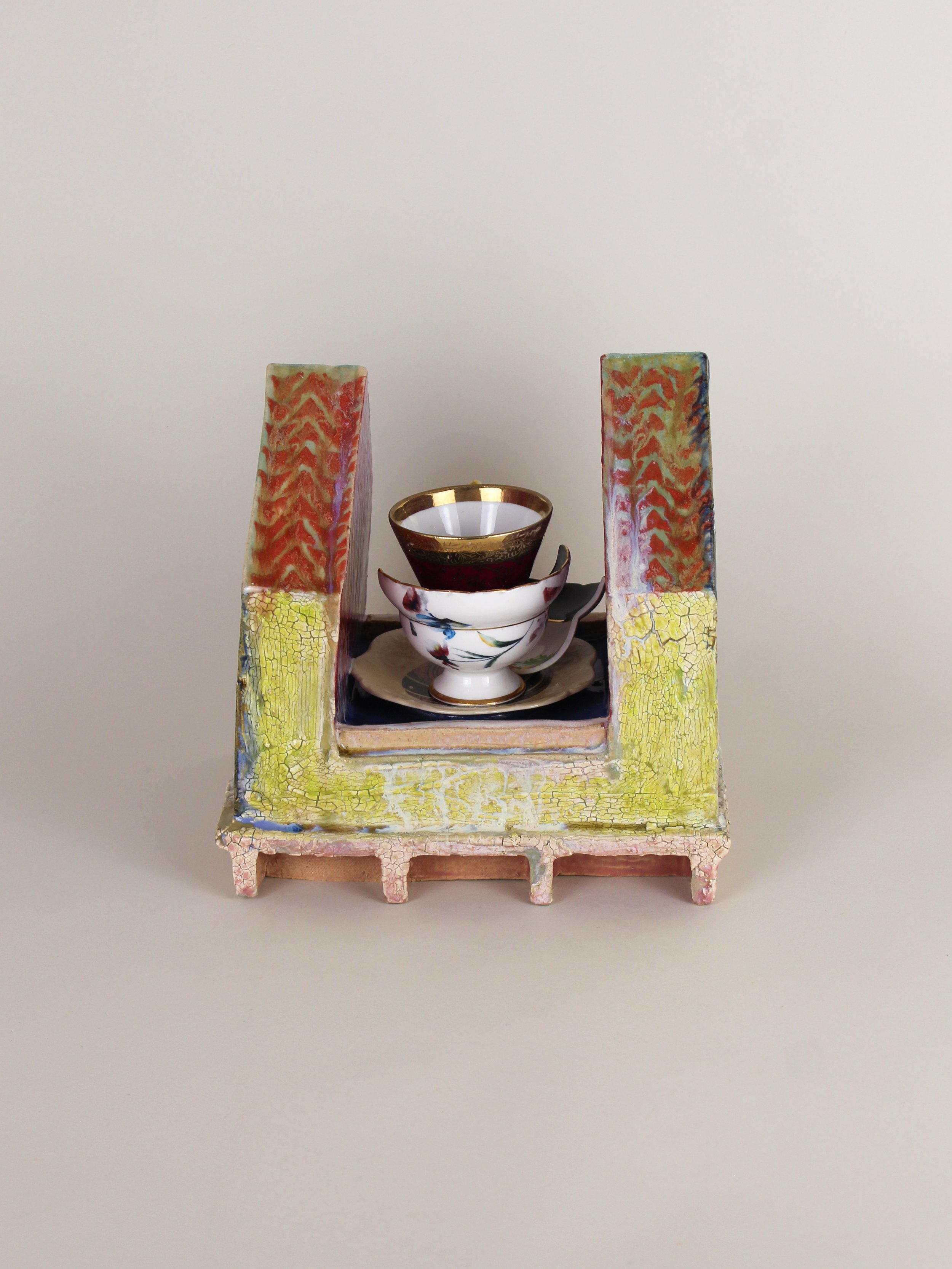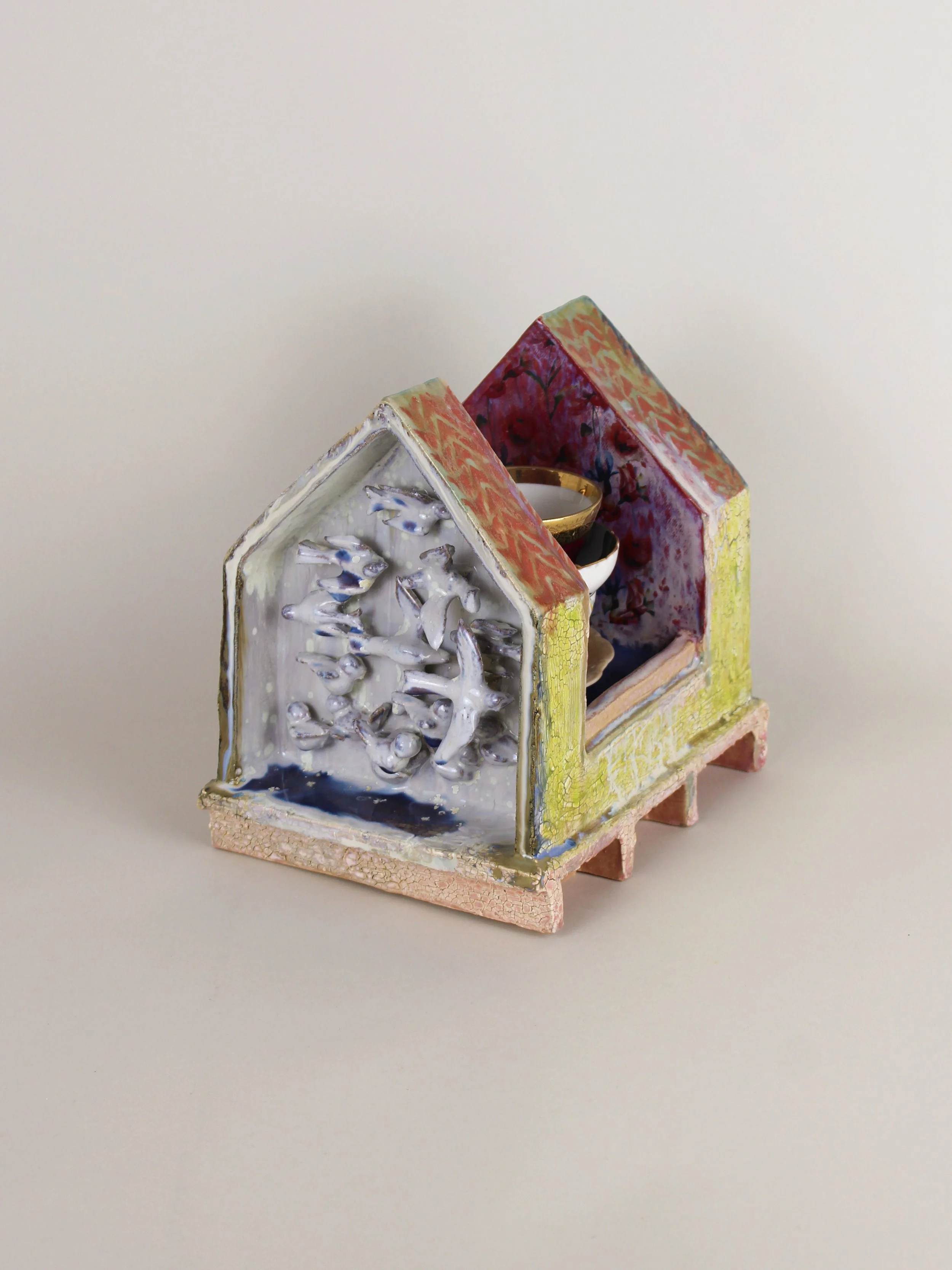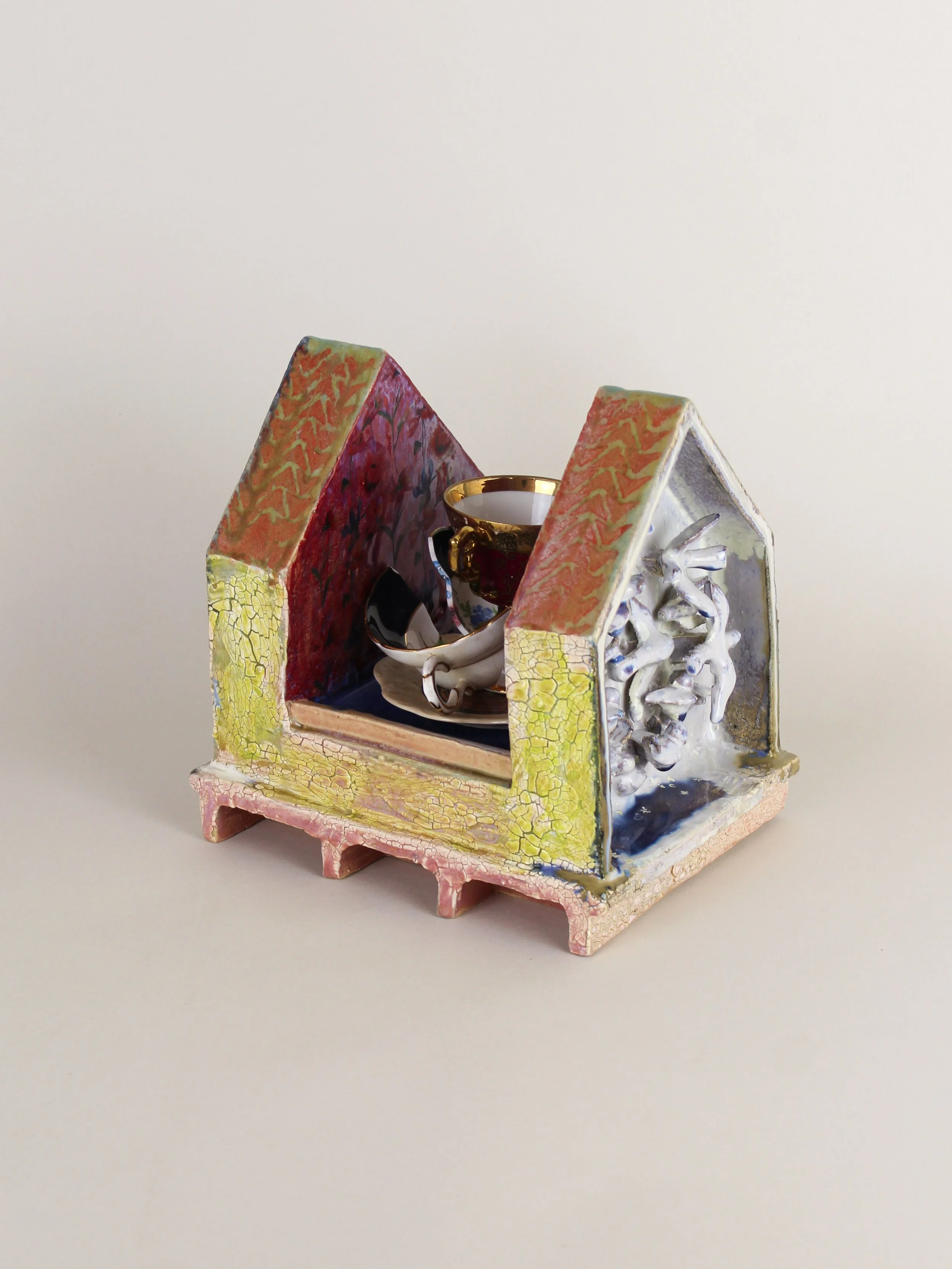LYDIA C. THOMPSON
BIOGRAPHY
She received her BFA from The Ohio State University and her MFA from the New York College of Ceramics at Alfred University. Her awards include a Fulbright Hays grant to research traditional architecture in Nigeria, a Windgate Distinguished Fellow for Innovation in Craft and a South Arts Individual Career Opportunity Grant. She was an AIR at the Medalta Ceramic Center, the Guldagergaard International Ceramic Research Center and the Hambidge Center for the Creative Arts & Sciences. Her work has been included in venues such as the Mindy Solomon Gallery, Society for Contemporary Crafts, Baltimore Clayworks, Ohr O’Keefe Museum, Kentucky Museum of Art and Craft, James A. Michener Art Museum, the Crocker Art Museum, the Mint Museum, Clay Art Center in NY, Northern Clay Center, Black Mountain College Museum + Arts Center. She has conducted workshops, given public lectures and served as a juror and curator for national and regional exhibitions. She resides in Charlotte, NC and is a Professor of Ceramics at UNC Charlotte.
ARTIST STATEMENT
My current research investigates the ideas of migration and residual ancestral memories that examine space and place that reference human existence. Through continuous mobility and the physical process of reduction made by nature, human beings create pathways that explore physical space that may produce visual silence, evoke the imagination, offer notions of commodities and value, and illustrate a sense of desperation that provides insights to various cultural practices and traditions. I also see my images as reminders of the past and current lessons that we need to learn about the persistence and preservation of one’s own culture.
About Tee Hypnosis
This work references the US slavery era; the cup was used by wives of slave owners as a form of communication to control and summon house slaves by gently striking their teacup. In Peele’s movie, Get Out, the teacup represents the idea of “white” on the surface and “black” underneath. The teacup is used to hypnotize Chris, which symbolizes the way in which black people are often controlled and manipulated by white people in positions of power. Today, these historical teacups can be found in antique shops waiting for a new residency.


